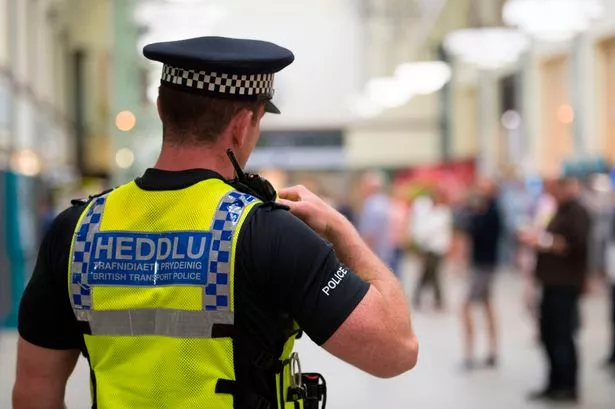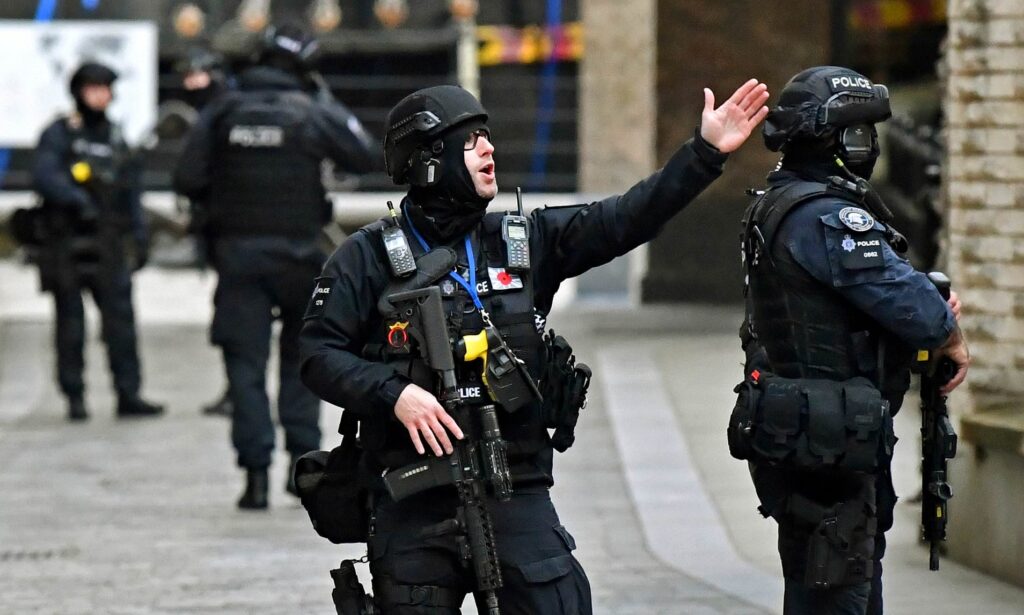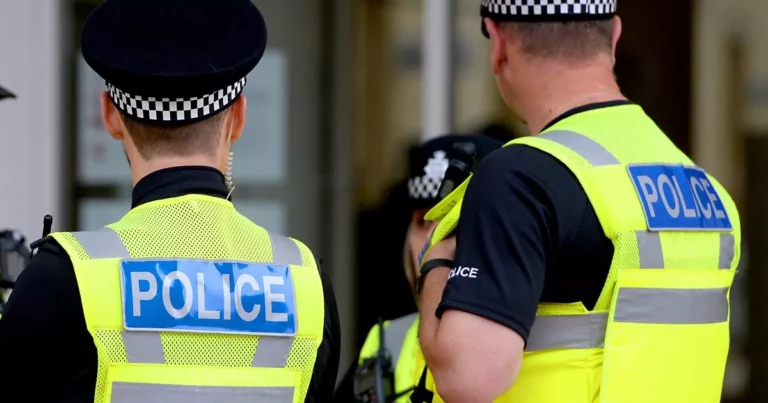This quirky moniker carries a history rooted in linguistic evolution and cultural context. The origins of this slang phrase can be traced back to the late 19th century. The exact reason for this nickname is uncertain. but it may be related to the use of the name “Bill” as a generic term for a police officer, similar to the way “Bobby” is often used.
The colloquial term “the old bill” has long been used to refer to the police force in some English-speaking countries, particularly in the United Kingdom.
Over time, the term has taken on different connotations, from casual reference to more satirical or critical implications. Delving into the historical, linguistic, and sociocultural aspects of why the police are sometimes called “the old bill” provides an intriguing perspective on the evolution of language and its ties to societal dynamics.
Historical Context

During the late 19th century, a time of significant social and industrial changes, the colloquial term “the old bill” emerged as a reference to the police force. This period witnessed urbanization and increased crime rates, which led to the establishment of formalized police departments in growing cities. Also, slang was a vibrant aspect of language during this era, reflecting evolving social dynamics and attitudes.
Consequently, “the old bill” likely originated from the trend of using playful and satirical language in various contexts. One possible influence for the term came from “bill,” a colloquial term for a police officer’s truncheon or baton. This association between the authority symbol and the term “bill” may have playfully extended to encompass the entire police force, resulting in the widespread use of the term “the old bill.”
Linguistic Evolution
Language is a dynamic entity that constantly evolves to reflect changes in society, culture, and technology. New words and phrases emerge while older ones may fade away or take on new meanings.
Moreover, this process, driven by social interaction, technological advancements, and cultural shifts, plays a crucial role in shaping the way we communicate. The evolution of language often involves the adoption of new terms to describe evolving concepts and entities.
Consideration of Other Slang Terms for the Police:
Some slang terms evolve organically, while others are intentionally created to subvert or criticize authority. For example:
1. Cops: Derived from the word “constable” or “police officer,” this term is widely used to refer to the police in many English-speaking countries.
2. Fuzz: This term’s origin is uncertain, but it gained popularity in the mid-20th century. Its whimsical nature contrasts with the serious image of law enforcement.
3. Pigs: This derogatory term, which likens police officers to pigs, emerged during the countercultural movements of the 1960s and reflects a sentiment of resistance against authority.
4. Five-O: Popularized by the TV show “Hawaii Five-O,” this term has become synonymous with the police, especially in the United States.
5. The Boys in Blue: This phrase harks back to the traditional uniforms worn by police officers and emphasizes their presence in the community.
Sociocultural Significance
The police force holds a unique place in society, often symbolizing authority, security, and law enforcement. However, perceptions of the police can vary widely, influenced by historical experiences, cultural narratives, and contemporary events. The term “the old bill” carries sociocultural significance as it reflects not only the public’s view of law enforcement but also the complex relationship between citizens and authority figures.
Use of Language to Express Authority and Control:
Language is a powerful tool for expressing authority and control, and this aspect is particularly relevant to the term “the old bill.” The use of “bill,” which can evoke the image of a truncheon or baton, ties into the broader idea of police officers as enforcers of the law. On the other hand, the term’s adoption might serve as a linguistic reminder of the authority vested in the police to maintain order and ensure compliance.
Moreover, the term’s informality, with “old” preceding “bill,” offers a paradoxical blend of familiarity and authority. This linguistic duality encapsulates the intricate balance that police forces strive to strike – being approachable and accessible while upholding the law.
Examples of the Term’s Shifting Connotations:
1. Critical Connotations: During periods of social upheaval or public criticism of law enforcement, the term “the old bill” could take on more negative or sarcastic undertones. This shift in connotation reflects public sentiment toward perceived abuses of power or misconduct.
2. Pop Culture Influence: The term’s usage in literature, music, and media can impact its connotations. Depending on the context portrayed in popular culture, the term may be celebrated or denigrated, influencing public perceptions.
3. Community Engagement: In some cases, the word could be used affectionately within certain communities, reflecting a localized familiarity and a sense of trust between the police and the people they serve.
4. Professionalism and Respect: In modern times, efforts by police departments to enhance their professionalism and community relationships might influence the way the term is perceived. If departments are successful in establishing positive relationships, the term could come to carry more respectful and collaborative connotations.
Modern Usage:
Variations and Adaptations in Different Regions:
- In the United States, the term “the cops” or “the police” is more prevalent.
- In Australia, the term “the coppers” or “the cops” is often used.
- In Canada, the term “the Mounties” refers specifically to the Royal Canadian Mounted Police.
Impact of Pop Culture and Media:
Pop culture and media play a significant role in shaping the public’s perception and usage of terms like “the old bill.” Movies, television shows, music, and literature often portray law enforcement in a variety of ways, influencing the way people engage with these concepts.
1. Media Representation: Positive portrayals of police in media might lead to the term being used more neutrally or even affectionately, while negative portrayals can contribute to a more critical or skeptical usage.
2. Satirical or Subversive Elements: In media, the term might be used in a satirical or subversive manner to critique authority or draw attention to perceived abuses of power. Such usage can contribute to the term’s persistence in cultural discourse.
3. Cultural Icons: Iconic fictional police characters like Sherlock Holmes or fictional detectives from crime novels can also impact the term’s usage and associations. These characters can influence the perception of real-world law enforcement.
4. Internet Culture: The internet and social media have further extended the term’s reach, allowing it to spread across borders and cultures. Online discussions, memes, and digital interactions contribute to the term’s continued use and evolution.
Critiques and Debates:
1. Informal and Disrespectful: Critics argue that using slang like “the old bill” might be seen as disrespectful or overly casual when discussing a serious institution tasked with maintaining law and order.
2. Lack of Professionalism: Some contend that using colloquial terms diminishes the professionalism of law enforcement and can erode public trust in their abilities.
3. Normalization of Skepticism: Supporters of law enforcement might view the use of slang as contributing to the normalization of skepticism or criticism towards the police, potentially hindering their ability to carry out their duties effectively.
Potential Implications of Using Slang in Policing Discourse:
The language used in discussions about law enforcement can have far-reaching consequences, affecting public perception, trust, and communication between officers and citizens.
1. Communication Breakdown: Depending on the context, using slang might lead to miscommunication or misunderstandings between law enforcement and the public they serve.
2. Cultural Sensitivity: The choice of language can impact interactions with diverse communities, potentially unintentionally alienating or offending certain groups.
3. Trust and Legitimacy: The casual use of slang might contribute to a perception that law enforcement is not taking its role seriously, potentially eroding trust in its legitimacy.
Reflection of Broader Issues within Law Enforcement:

1. Power Dynamics: The term’s colloquial nature may reflect power dynamics between the police and the public. It can highlight the balance between authority and accessibility that law enforcement agencies strive to maintain.
2. Community Engagement: The term’s use can signal the level of engagement and rapport that law enforcement has with the community. If used positively, it might indicate a collaborative relationship; if used negatively, it could point to a lack of trust.
3. Transparency and Accountability: TraThe debates surrounding the term illustrate ongoing discussions about transparency, accountability, and the role of law enforcement within democratic societies.
What does the old bill mean for police?
A police officer (Slang, police enforcement, and Britain) one of the police. (Slang used in Britain, usually with the) Police Corps. (Old British slang) A soldier, particularly one who looks like the same-named cartoon character that Bruce Bairnsfather made in 1914.
FAQ
Why is the term “the old bill” used to refer to the police in the UK and sometimes in the US?
he slang term and its historical significance, shedding light on its cross-cultural usage.
How does the term “the old bill” reflect changing attitudes toward law enforcement?
This FAQ delves into how the term’s shifting connotations mirror evolving societal perceptions and critiques of policing practices.
How do pop culture and media impact the usage of the term “the old bill” in the US?
Explore the influence of movies, TV shows, music, and online platforms on the way the term is used and understood within American society.
Conclusion
The term “the old bill” encapsulates a historical, linguistic, and sociocultural journey that reflects the ever-evolving relationship between law enforcement and society.
As it persists in contemporary discourse, the term remains a linguistic touchstone, offering insight into the complex perceptions, debates, and broader issues surrounding law enforcement and authority.

